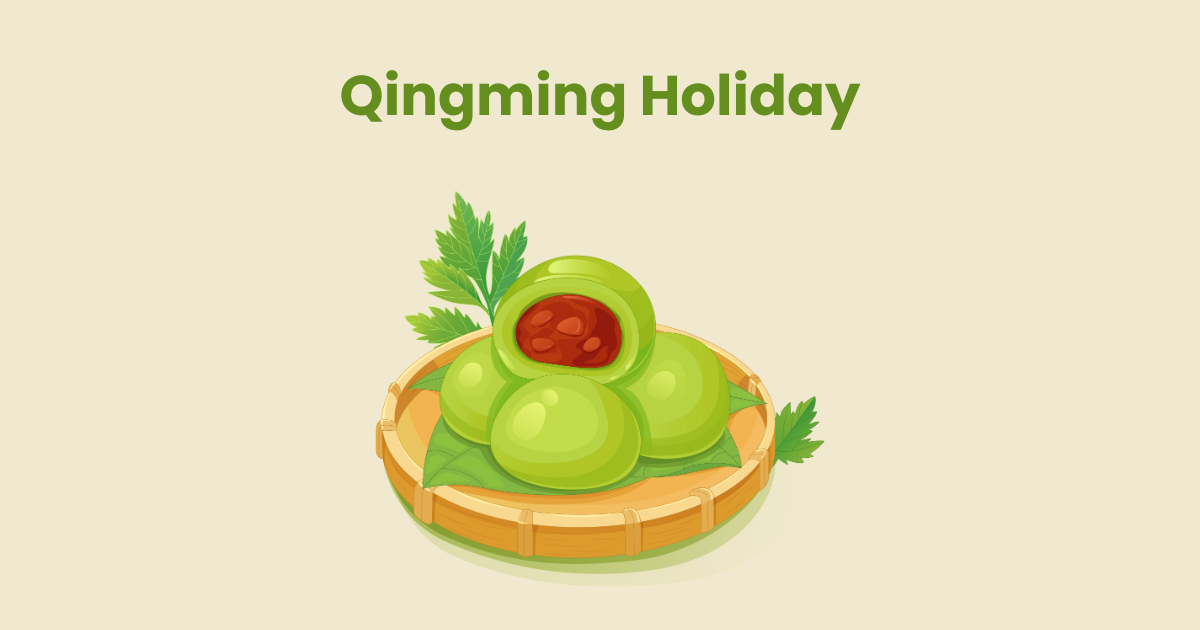You may be surprised that not every country allows people to have a day off during the Qingming Holiday. It is a unique occasion in Chinese culture, also known as Tomb-Sweeping Day or Pure Brightness Festival where people visit ancestor tombs and pay respects to them with sacrifices. So why is it extremely important in Chinese culture, and what are popular Qingming festival traditions to follow? Let’s dive in!
Table of Contents
What is the Meaning of the Qingming Holiday?
In Chinese culture, Spring is the season of festivals and renewal, symbolising the awakening of nature and the celebration of new beginnings. During the spring season, several important festivals are celebrated in Chinese culture, each with its unique customs and significance. Qingming Holiday is one of them.
Qingming Holiday has a special meaning, often occurring around early April. Qingming is a time for families to visit the graves of their ancestors, clean tombstones, make offerings, and pay respects, so it comes with the name Tomb-Sweeping Day. During this time, it is also an occasion to enjoy outdoor activities and appreciate the arrival of spring, named Pure Brightness Festival.
Qingming Holiday is observed to be over 2500 years old. The festival’s roots can be traced back to the Zhou Dynasty (1046–256 BCE) when people paid respects to their ancestors by making offerings at their gravesites. Over time, these rituals evolved, and the specific date for Tomb-Sweeping Day was established during the Tang Dynasty (618–907 CE).
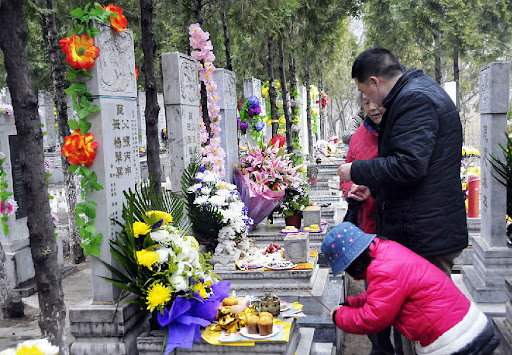
When is the Qingming Festival 2024?
While Qingming has ancient origins, it has continued to be an important cultural observance in modern times. In 2008, the Chinese government officially designated Qingming Jie (Qingming Festival) as a public holiday, allowing people the opportunity to take time off work to pay their respects to ancestors and engage in related activities.
Before that, Taiwan soon announced it as a public holiday in 1975 as a part of honouring the death of Chiang Kai-shek. However, other oriental countries like Vietnam, Malaysia, and Singapore also have Qingming but haven’t recognized it officially as a national holiday. However, many people respect Qingming holiday traditions and often take annual leave to participate in family ceremonial activities.
The Qingming Holiday 2024 will fall on Thursday, April 24. In Taiwan, people will take a 4-day holiday from April 4 to April 7, including Children’s Day, while China allows three days off from April 4 to April 6.
You May Also Like:
- 5 Fun Chinese New Year Activities For 2024
- How To Celebrate The Chinese Lantern Ceremony In 2024
The Most Popular Qingming Festival Customs
What are the rituals of Qingming?
The Qingming Holiday has several rituals that people follow to honour their ancestors. According to the old customs, people bring wine, fruits, paper money, and other items to the cemetery when sweeping tombs. They offer food to their relatives’ graves, burn paper money, cultivate new soil for the graves, fold a few green branches to insert them on the graves, and then kowtow to worship. Descendants also buy or make offerings before paying homage to their ancestors. These offerings may include meats such as chicken, duck, pork, and fish, and other varieties of food and drink such as cakes, fruits, vegetables, rice, wine, and tea.
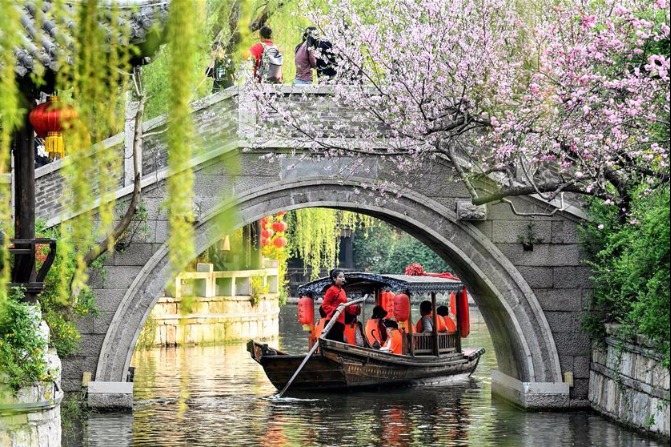
What can you not do at the Qingming Festival?
However, there are also things that you should not do during the Qingming Holiday. It is not recommended to visit friends or distant relatives during the holidays, as the Qingming Festival is a private family celebration. It is best to avoid staying out too late as well. Additionally, taking pictures at the cemetery is not considered appropriate during this festival, so it’s best to refrain from doing so.
Less Popular Qingming Festival Customs
There are many things that you might not know about the Qingming Holiday as some traditions no longer exist or just take place in some parts of China. Here are some interesting Qingming festival traditions that are not popular nowadays.
Making a scented sachet bag was one of the most popular Qingming Festival Customs in the past. People in the ancient era loved to pack aromatic herbs and spices in delicate sachets during this occasion. The elegant and mild fragrance with cool feeling from sachets can calm people down, and relieve and soothe the fidgetiness at the end of spring.
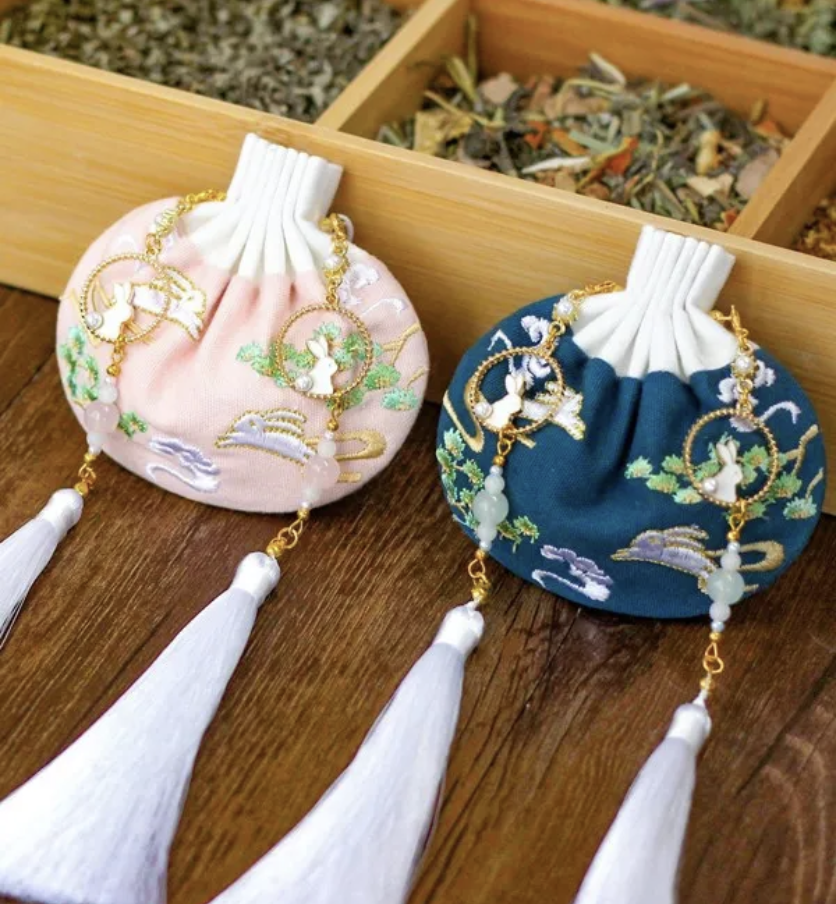
Flying kites is also one of the interesting Qingming Festival activities along with spring outings. It’s recognized as a traditional folk tradition, where people write their name on the kite and cut the kite loose once it’s in the air, which was believed to bring good luck.
Qingming Festival foods
Qingming festival used to involve The Cold Food Festival, when people refrained from lighting fires for cooking and instead ate cold or ready-to-eat food. This was originally a day for people to abstain from using fire and cooking as a way to commemorate Jie Zitui, a loyal follower of Duke Wen of Jin during the Spring and Autumn Period (770–476 BCE).
- Qingtuan – Green rice balls, a dumpling made from glutinous rice mixed with Chinese mugwort or barley grass that was filled with red or black bean paste. It is one of the few cuisines that continues to be eaten today.
- Qingming Guo is another popular food of the Qingming festival in China’s Jiangnan area. It can be made as a sweet or stuffed with meat and bamboo shoots.
- Sanzi, or fried dough twist, is enjoyed mostly from the North to South of China with different recipes. Northern people like to use wheat, while Southern people make it from rice or vermicelli in smaller sizes.
- Zitui bun with jujubes – is a traditional Qingming festival food of northwest China’s Shaanxi Province. Its flavours are a blend of sweet and savoury.
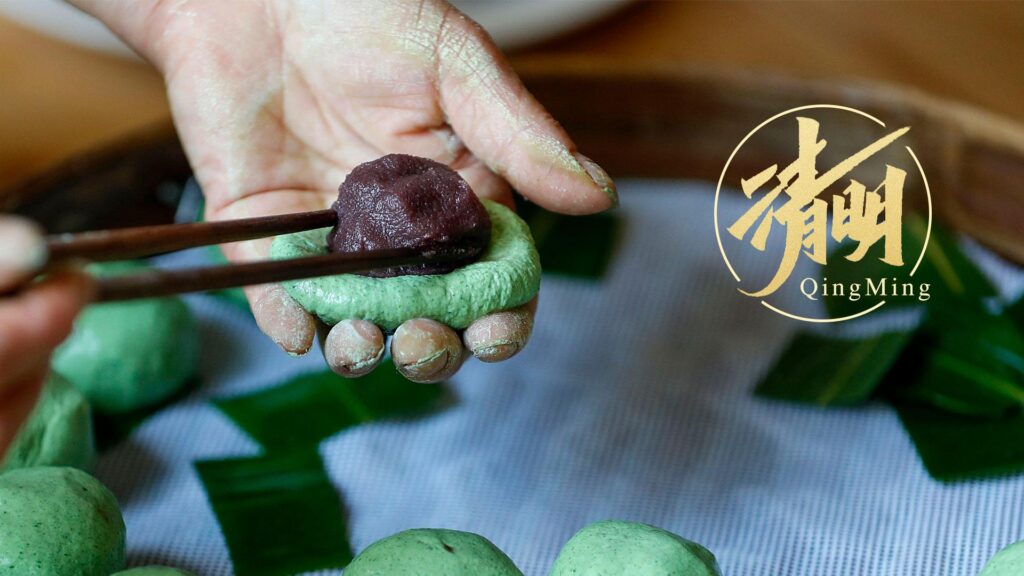
Key Takeaways
The era is changing fast, and as societal dynamics evolve, many traditions might no longer exist or become rarely observed. But it is essential to preserve Qingming holiday customs. It still plays a key role as a bridge between the old and the new, shared moments with family, and a deeper understanding of one’s roots.
💡If you are looking for other engaging activities for the Spring holidays, we offer more inspiration and suggestions to help you fulfil your holiday with your loved ones.
💡And if you are seeking a perfect quiz maker to arrange a quiz time to help your students learn about different festivals around the world, check out AhaSlides right away. It offers a range of pre-made and free templates to help you quickly prepare for the quizzes.
More tips and advice about events? Pick an event that you’re concerned with, and we’ll give you a helping hand!
FAQs
What is traditional Lunar New Year food?
Some of the most famous traditional foods in Chinese culture during the Lunar New Year are longevity noodles, whole steamed fish, sticky rice cakes, cabbages, spring rolls, lentils, and oranges.
What are the food activities for Chinese New Year?
Food is a significant part of celebrating Chinese New Year successfully. There are specific rituals for preparing foods for this event, as different foods symbolise different meanings.
Why do we eat dumplings on Chinese New Year?
It is a custom to eat dumplings on Chinese New Year. The food has its look similar to the money pouches, which represent prosperity and luck in the coming year.
